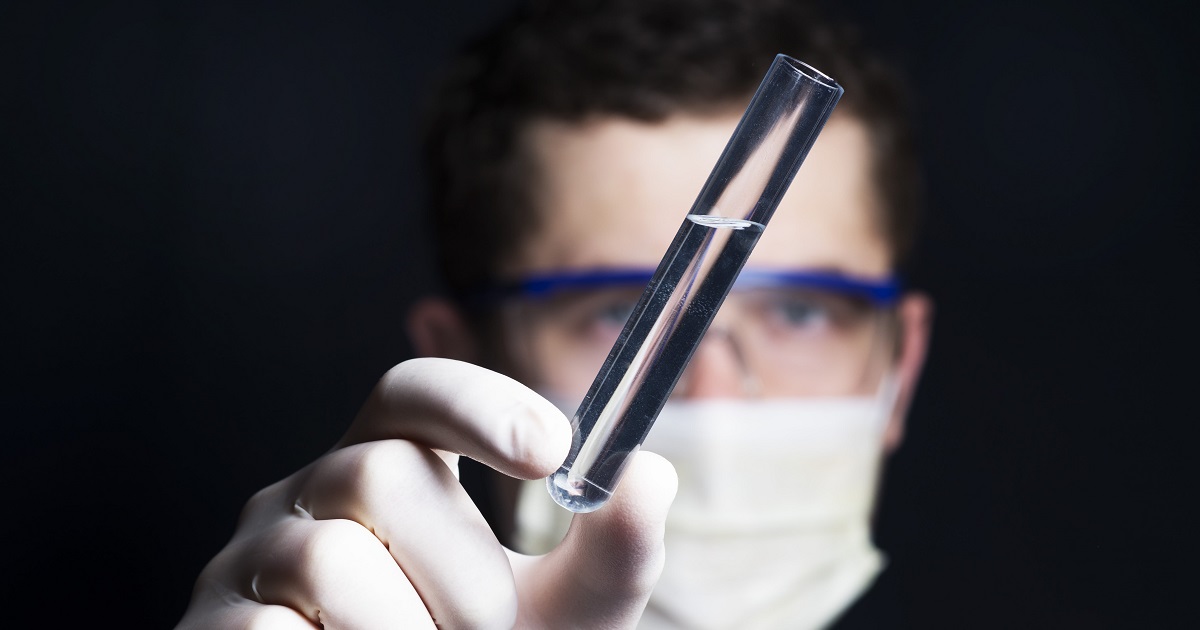
Chemical Management
Charter Next Generation | January 30, 2024
Charter Next Generation (CNG), a leading provider of sustainable films, announced that it has expanded its GreenArrow portfolio with a new line of cavitated polyethylene (PE) films. Developed in collaboration with VOID Technologies (VOID), the new recycle-ready films meet the rapidly growing demand for flow wrap and confectionery applications. Using VOID's patented VO+™ PE Voiding Agent Masterbatch and Machine Direction Orientation (MDO) film processing, CNG has successfully developed high-performing PE film structures that are opaque yet compatible with existing PE recycling streams making more packaging suitable for recycling.
Adoption of MDO PE film is a rapidly growing industry trend as it enables recyclable, high-performing flexible packaging. By using VO+ Masterbatch, CNG can now produce thin gauge voided MDO PE films that offer a combination of low density and high opacity not achievable with mineral additives such as TiO2 pigments or CaCO3 cavitation agents. This innovation creates a unique PE-based recycle-ready alternative to conventional PP-based substrates that often require biaxial orientation.
"CNG continues to raise the bar and re-invent packaging with a sustainability-first mindset. Using VOID's patented VO+ technology enables us to achieve the high opacity, ease of processing, and recycle-ready performance we are targeting for these films. This in turn allows our customers to reduce their use of virgin materials and process their packaging in existing polyethylene film recycling streams," said Brent Greiner, Vice-President of Technology at Charter Next Generation.
The VO+ PE Masterbatch is added to PE resin to create nano and micro-scale voids, reducing density and creating high levels of opacity via light scattering through the voided structure. VOID's latest VO+ PE Masterbatch product is compliant with direct food contact standards in North America and Europe and has passed key recycling standards.
James Gibson, CEO of VOID Technologies, commented, "CNG is a highly innovative and forward-thinking company. We are delighted with this collaboration and to be part of launching this new generation of recycle-ready voided PE films. As we look to the future, we are excited to be working with CNG across a range of projects that directly address sustainability and recycling targets."
About Charter Next Generation
Charter Next Generation (CNG) is North America's leading producer of highly engineered solutions used in the food, consumer, healthcare, and industrial markets. Committed to a sustainability-first approach, CNG leverages material science to engineer materials that help companies meet and exceed their sustainability goals. Known for world-class manufacturing capabilities and an innovation-driven approach, CNG operates fifteen facilities and employs over 2,200 employees and is a proud partner of Ownership Works®—a nonprofit partnering with companies to enable shared ownership, granting employees a stake in the value they create.
About VOID Technologies
VOID is a materials science company accelerating the transition to more sustainable plastics and packaging. The company combines its VO+ cavitation technology and R&D labs to help plastic and packaging companies rapidly develop new innovative products with a reduced environmental footprint. VOID's extensively patented VO+ technology was first conceived as part of a research initiative at Kimberly-Clark. Soon after, in 2015, VOID was launched as an independent company. Today, VOID has R&D labs and a compound manufacturing facility based in Neenah, Wisconsin (USA) and has commercial teams in Canada, France, and the UK.
Read More

Chemical Management
LyondellBasell | January 24, 2024
LyondellBasell (LYB), a global leader in the chemical industry, is proud to announce the release of a cross-linkable, all-in-one flame-retardant compound, Petrothene T3XL7420, which is expected to deliver considerable cost savings while streamlining manufacturing processes. This new product offering also improves the quality of end products for wire producers in the automotive and appliance industries. Based on customer demand and industry need, LyondellBasell designed this innovative compound to address the need to optimize production line speeds and enhance manufacturing efficiency.
Petrothene T3XL7420, is specifically formulated for use in Society of Automotive Engineers (SAE) primary wire applications, International Organization for Standardization (ISO) thin wall applications, and Underwriters Laboratories (UL) and Canadian Standards Association (CSA) appliance wire. Petrothene T3XL7420 offers several benefits that make it an attractive option for wire producers, including enhanced cure kinetics, increased stiffness for easier small gauge wire assembly and better barrier performance compared to other Petrothene XL.
"Developing innovative solutions to address the ever-evolving needs of our customers is an important aspect of how we operate and continue to grow our market share," said Palmer Giddings, vice president Polyolefins at LyondellBasell. "Providing cost effective and efficient solutions that are UL and CSA certified, gives us a market advantage for this one-of-a-kind solution."
Petrothene T3XL7420 has undergone rigorous testing and certification processes to ensure its quality and reliability. With this latest development, LyondellBasell reinforces its position as a leading provider of innovative solutions for the wire and cable industry and expects this compound to become the product of choice for a wide range of automotive and appliance wiring applications.
About LyondellBasell
We are LyondellBasell – a leader in the global chemical industry creating solutions for everyday sustainable living. Through advanced technology and focused investments, we are enabling a circular and low carbon economy. Across all we do, we aim to unlock value for our customers, investors and society. As one of the world's largest producers of polymers and a leader in polyolefin technologies, we develop, manufacture and market high-quality and innovative products for applications ranging from sustainable transportation and food safety to clean water and quality healthcare.
Read More

Chemical Management
LyondellBasell | February 02, 2024
LyondellBasell and MSI Technology, LLC announced they have entered into an agreement for MSI Technology to serve the LyondellBasell Polybutene-1 (PB-1) resin line into consumer packaging applications for North America. MSI Technology is also the sales representative for the LyondellBasell Plexar product line. The expansion of the relationship is a strategic fit relative to the markets MSI Technology serves today. MSI Technology will use its technical sales approach combined with its current specialty product portfolio to enhance offerings to customers in consumer packaging.
LyondellBasell PB-1 resins are commonly used in consumer packaging applications for easy-open packaging and film modification for seal initiation temperature providing
Broad seal-peel temperature range
Consistent and reproducible peel performance
Adjustable peel force to end-use requirements
Similar initiation and propagation peel force
"Whitening" with "Smooth & Clean" peel surface
Good seal integrity
Easy processability
Usable in blown film, cast film, extrusion coating and sheet extrusion
"At LyondellBasell, we're passionate about creating solutions for everyday sustainable living," said Palmer Giddings, vice president Polymers at LyondellBasell. "Collaborating with MSI Technology on innovative packaging solutions is a major step forward in achieving that goal."
"We are thrilled to expand our collaboration with LyondellBasell," said Brian McCaghy, president of MSI Technology. "The PB-1 resins align perfectly with our mission to provide specialty polymers and solutions to the packaging industry."
The PB-1 resin line is part of MSI Technology's product offerings. The company also provides clients with access to dedicated sales and technical service specialists who provide guidance on technical resin selection to meet customer requirements.
About LyondellBasell
We are LyondellBasell – a leader in the global chemical industry creating solutions for everyday sustainable living. Through advanced technology and focused investments, we are enabling a circular and low carbon economy. Across all we do, we aim to unlock value for our customers, investors and society. As one of the world's largest producers of polymers and a leader in polyolefin technologies, we develop, manufacture and market high-quality and innovative products for applications ranging from sustainable transportation and food safety to clean water and quality healthcare.
About MSI Technology, LLC
MSI Technology specializes in the sales, marketing, and development of specialty polymers. Our product lines include: Plexar tie-layer adhesives (manufactured by LyondellBasell), SPS peelable sealants, and SpeciPurge purging compound. MSI Technology and its sister company, Soarus LLC, are located in Arlington Heights, IL. Soarus markets Soarnol™), ethylene vinyl alcohol copolymer (EVOH), (manufactured by Mitsubishi Chemical Group) into North and Latin America. The two companies together provide sales and technical service for specialty polymers focused on the packaging market.
Read More